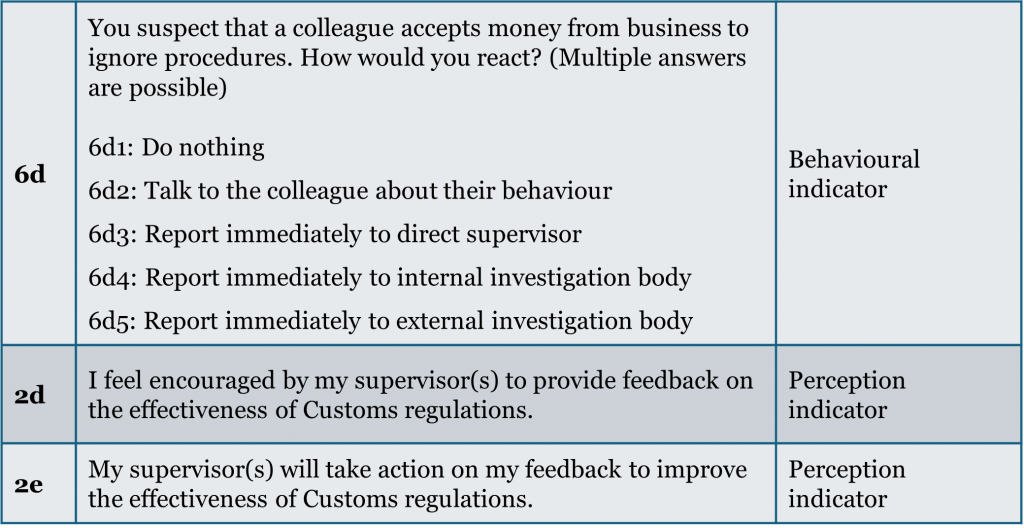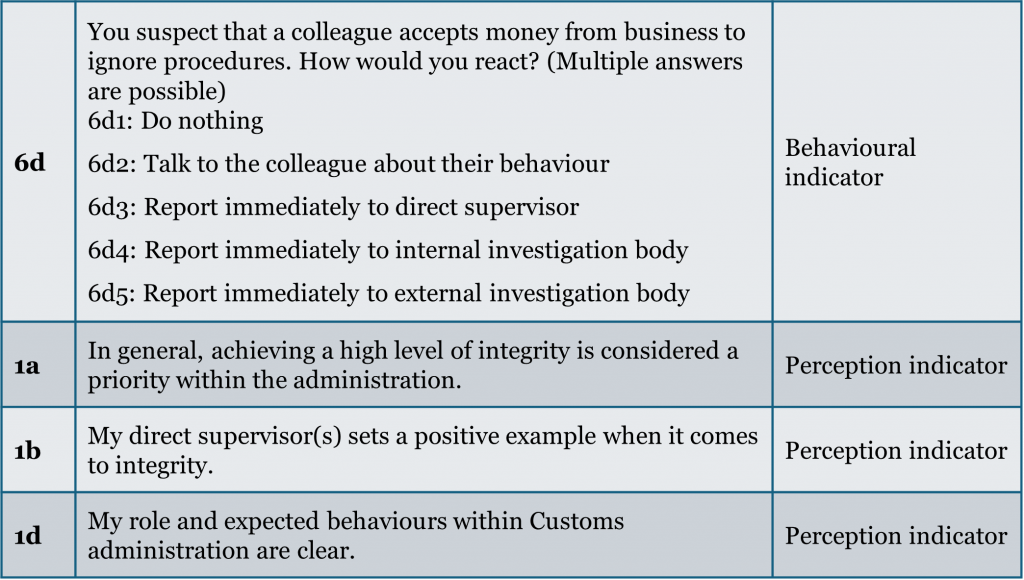Communicating effectively on integrity: how the CIPS can help tailoring messages
22 June 2025
By the WCO’s Anti-Corruption and Integrity Promotion (A-CIP) ProgrammeNew research regarding the impact and efficacy of anti-corruption messaging stresses that it is crucial for campaigners to tailor their messages to suit their audience, in other words to consider their prior knowledge, beliefs, and dispositions. They even suggest that anti-corruption communications can backfire if not tailored.[1]
Designing communications that effectively “nudge” individuals to make a better behavioral choice, based on what is known about this choice and what might drive that choice, is harder than one might think as it requires a certain level of insight.
One way Customs administrations can generate such insight is by conducting the Customs Integrity Perception Survey (CIPS) developed under the WCO Anti-Corruption and Integrity Promotion (A-CIP) Programme[2]. Made up of two questionnaires, one for Customs officials and one for private sector stakeholders, the CIPS contains indicators that measure behaviours in addition to perceptions. These measures of behaviour either reflect the self-assessed ability to act with integrity or the impact that (a lack of) integrity in Customs administrations has on the performance of the target respondent groups.
Members who have undertaken the CIPS have already seen the value of using the results to generate more meaningful communications. In last June’s issue of the WCO News Magazine, El Salvador and Mozambique shared their journey with CIPS and explained that they shaped their communications around the results to strengthen dialogue with key stakeholders on integrity.[3]
Analysis of the results can help identify topics to be addressed to ensure adherence with an integrity measure. For example, results have demonstrated that “perception of whistleblowing protection” is influenced by several other indicators from the Survey including the administration’s involvement in modernization programmes (Correlation of CIPS indicator 6a with 5a and 5b). In this instance, communication aiming to promote whistleblowing should highlight an administration’s modernization efforts.

Analyses of the CIPS results also reveals that Customs officials who were likely to “do nothing” when suspecting a colleague of accepting money from businesses to circumvent Customs procedures are less confident about the administration’s acceptance of employee feedback on the effectiveness and improvements in Customs regulations (correlation of CIPS indicator 6d1 with 2d and 2e). This suggests that improving the communication between those who make the regulatory policies and those who implement them could help to nudge officials to take action when suspecting of their coworkers.

The analysis also shows that Customs officials who chose to “refuse and report the incident” when a client offered money or a gift to expedite a process were more confident that integrity was a priority for the administration and that supervisors set a positive example of integrity, and that their expected responsibilities were clear (correlation of CIPS indicator 6d1 with 1a, 1b & 1d). This suggests that messaging that provides a sense of the administration’s leadership and commitment as well clarity on responsibilities might influence officials’ decision to refuse and report when offered bribes.

Some CIPS results has also greatly differ between regions, highlighting some need for some region to better communicate on some issues. For example, when suspecting a colleague of accepting money (CIPS indicator 6d), Customs officials from the WCO’s West and Central Africa (WCA) region were much more likely to choose “talking to a colleague about their behavior” (69%) than respondents from the Americas and Caribbean region (24%), who would be much more likely to “report immediately to the direct supervisor”. These insights were discussed with 15 Customs administrations of WCA alongside the possibility of supporting employee conversations that promote integrity behaviours together with other more formal mechanisms.
More information
WCO Secretariat
Methodological Guide of CIPS
[1] As presented by Caryn Peiffer, Associate Professor in International Public Policy and Governance at the University of Bristol in the 2025 OECD Global Anti-Corruption and Integrity Forum and CIPE’s How-to Guide to Anti-Corruption Messaging.
[2]https://www.wcoomd.org/-/media/wco/public/global/pdf/topics/capacity-building/activities-and-programmes/cooperation-programme/acip/cips_en.pdf
[3] How the Customs Integrity Perception Survey helped reinforce integrity in El Salvador and Mozambique – WCO

